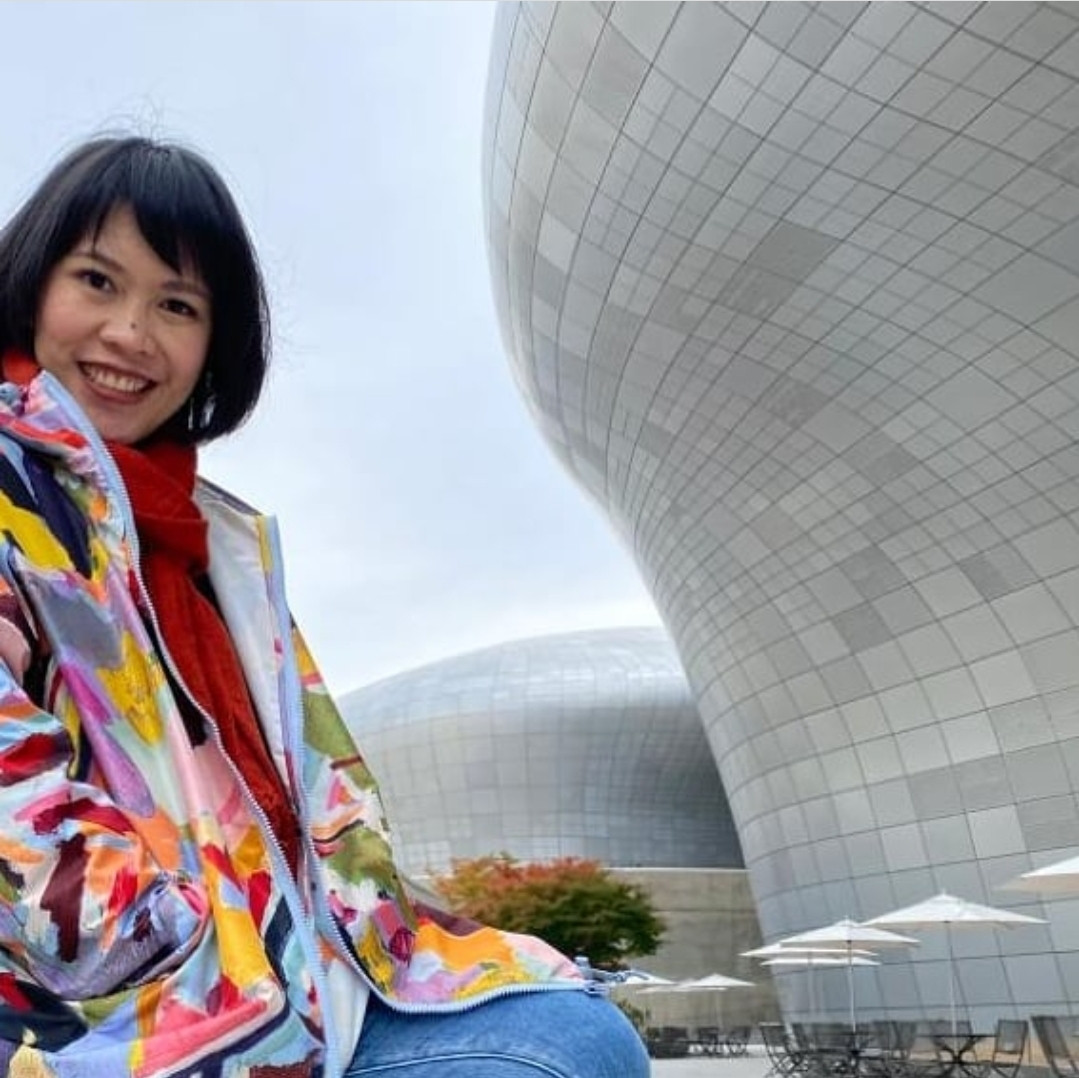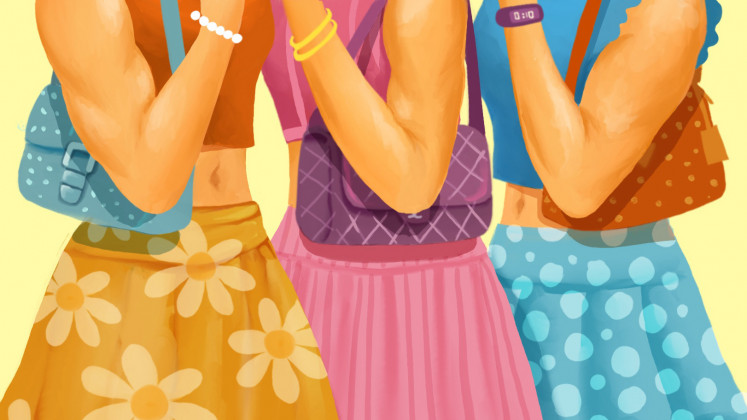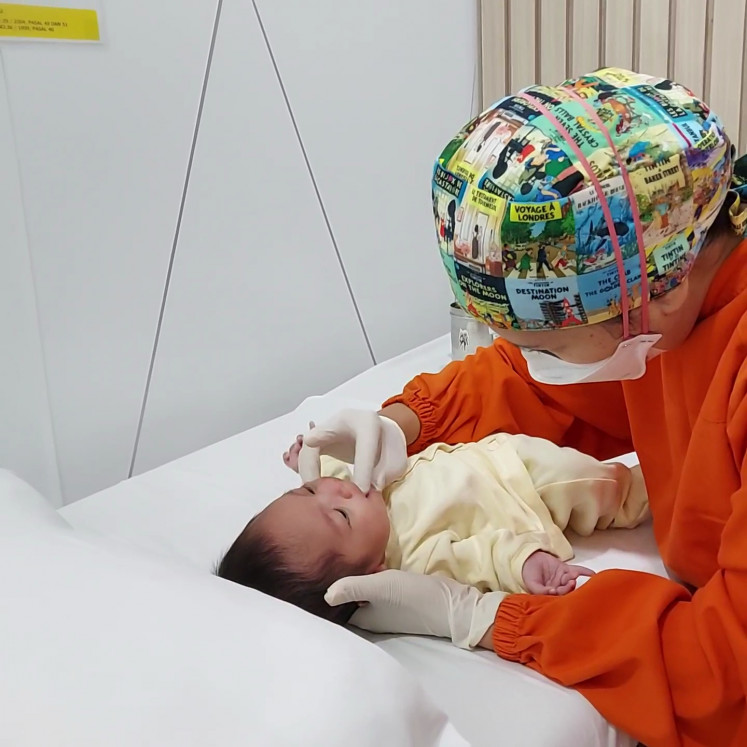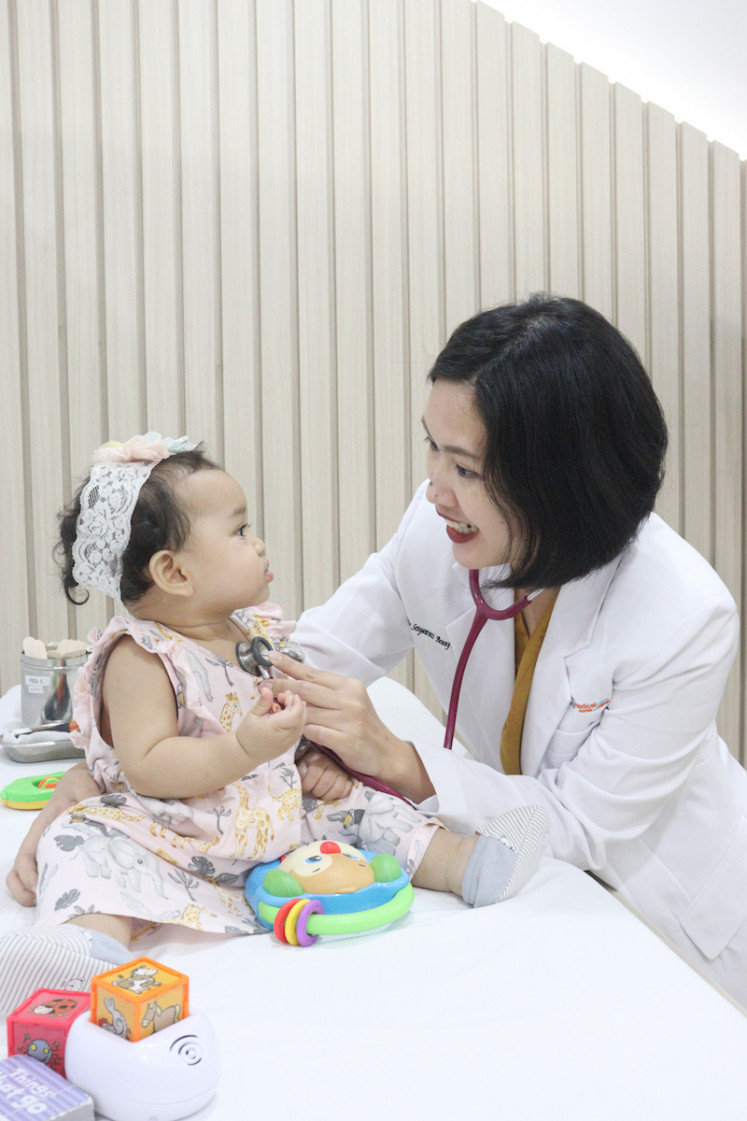Popular Reads
Top Results
Can't find what you're looking for?
View all search resultsPopular Reads
Top Results
Can't find what you're looking for?
View all search resultsWhat I've Learned: Dr. Ranti Hannah, breastfeeding activist and lactation consultant
Dr. Ranti Hannah spends her days guiding this generation of mothers along a path they might have otherwise never thought possible.
Change text size
Gift Premium Articles
to Anyone
"What I’ve learned" is a column that presents candid interviews with policymakers, artists, activists and business people on facing challenges and making a difference.
Dr. Ranti Hannah’s story is an unforgettable one. At 25, fresh out of medical school, she found a lump. She was 20 weeks pregnant with her daughter. After her mastectomy she found herself struggling to feed her daughter with one breast, sitting in her pediatrician’s waiting room with the eyes of breastfeeding mothers judging her. But instead of falling prey to the pressure, she let it carry her on her journey to become one of Indonesia’s leading breastfeeding advocates. Today, the lactation consultant and author of Hairless spends her days listening to mothers and tapping into a wealth of experience to help guide this generation of mothers along a path they might have otherwise never thought possible.
When I found the lump I thought it was normal. I was pregnant at the time. I thought it was hormonal. But it got bigger. And it just didn’t feel right. But since I was pregnant, I could only do an ultrasound. My doctor wanted to do a biopsy. But I was 20 weeks pregnant. So I just waited until after I gave birth. After my daughter was born we went straight into surgery. Then [chemotherapy] and radiation.
I found a lump in my breast when I was 25. I was pregnant at the time with my first child. I was fresh out of medical school. This started my journey to be a pediatrician, lactation consultant and breastfeeding activist.
When I was 10 years free from cancer I got pregnant with my second child. At the time, I only had one breast to breastfeed. And I didn’t have a lot of hope to be able to breastfeed my son successfully. But it turns out that with the help of lactation professionals and the support of my family I could do it. That started my breastfeeding training. Originally, I took all the courses for me, but I learned that I could help my patients too. So I went on to get all the international certifications and take an internship with senior lactation consultants.
Even as a pediatrician I didn’t get enough training on how to teach moms how to breastfeed. During my studies as a pediatrician I didn’t get a lot of training and information around breastmilk and breastfeeding. You would think that breastfeeding would be part of the babies and nutrition training. I had to look for the training and theory myself.
I’m practicing in Jakarta, caring for children from a wide range of socioeconomic backgrounds. Although breastfeeding has gained popularity in recent years, there are still a lot of women here who think that giving formula milk to children will make them smarter. When I tell them about the benefits of breastmilk, high IQs, higher emotional bonding with the mother, they are still skeptical. They are more influenced by the brand ambassadors on the internet and the advertisements they see on television.
Writing was a form of therapy. The book started as a private journal. But after I did the chemo and I started to feel normal and get back to work, friends encouraged me to publish. There are not a lot of Indonesian books about breast cancer. There are plenty of books out there by caucasian women. But here in Indonesia we don’t talk about breast cancer. This was in 2009. There wasn’t the social media we have now.
The book is about what it was like for me when I first got diagnosed, the steps I took, the feelings I felt.
Love for children: Dr. Ranti is a breastfeeding activist & lactation consultant (Courtesy of Dr. Ranti) (Personal archive/Courtesy of Dr. Ranti)Cancer is a lot more common than you think. The demographic is getting younger. We should raise awareness earlier.
It’s been 10 years now, and thankfully I can talk about having breast cancer with general ease. But I wasn’t that carefree at the time.
I’m passionate about breastfeeding and lactation consultancy. Breastfeeding is a learned skill. For the baby it is natural—it’s instinctive, but for the mother it doesn’t happen that way, it’s a learned skill.
That’s why I want to educate, teach, and empower mothers to breastfeed-which is (in my opinion) one of the most beautiful and rewarding experience as a mother
Some moms want to breastfeed, but don’t know how. Maybe it is painful or maybe they have been inundated with the myths that formula milk is better for their babies. Maybe they just don’t know how…or the right way to do it.
Maybe the pressure from their mothers and mothers-in-law is too great?
My mom was not breastfed and I was not breastfed. That was the norm. She was a working mom and formula seemed like a more practical choice.
And we think that now. We think that working moms can’t breastfeed. But that’s not true. There are tricks we can use so that you can work and give your kid all the breast milk they need. I believe that 80 to 90 percent of women can breastfeed. They just need the right support system. Only a small number of women have a medical condition that makes it so they can’t breastfeed.
The good news is that the conversation is shifting toward the benefits of breastfeeding, and I want to be a part of that.
I want the generation now, and the generation that follows to be raised on breast milk if possible.
Advice for husbands? Just listen to your wife. Lots of husbands think “I want my wife to breastfeed” but they don't listen. Maybe some moms don’t want to breastfeed and that’s fine. But the husband has to listen and support her. He has to have the same vision as the mom. They have to be on the same page.
Husbands have to help take the pressure off moms a little bit. They have to be able to fend off the myths, keep their mother-in-law at bay and relieve that pressure from family members.
We have to open the eyes of mothers and mothers-in-law. We have to teach them to listen to their daughters and not force their beliefs and experiences on the mom.
Ultimately it’s her decision, it’s her body and her baby. There are some serious psychological aspects around breastfeeding and not breastfeeding. People used to think that they couldn’t breastfeed because of the myths, but now there is a lot of pressure and even judgment from the breastfeeding community as well. For me, I was in the pediatrician waiting room, feeding my daughter with a bottle, but they didn’t know my story. Inside the advocacy for breastfeeding we need to make sure we are not judgemental of others. Everyone has their reasons.













